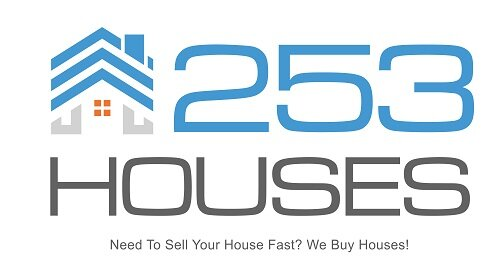In order to qualify for Chapter 7 bankruptcy, you must pass a “means test.” This test looks at your income and compares it to the median income in your state. If your income is lower than the median, you automatically pass the means test and are eligible to file for Chapter 7 bankruptcy.
Table of Contents
• Is it better to file a chapter 7 or 13?
⮩ What is the difference between chapters 7 and 13?
• How to file bankruptcy chapter 7?
⮩ Can I keep my car if I file for Chapter 7?
• Foreclosure and bankruptcies
• Trustee wants to sell my house
⮩ Can I reaffirm my mortgage in Chapter 7 bankruptcy?
• What debts are not discharged in bankruptcy?
⮩ Have trouble what to do with your property? 253 Houses is here to help!
Is it better to file a chapter 7 or 13?
Chapter 7 bankruptcy is designed for people who can’t afford to repay their debts. If you have a lot of equity in your home, you may not be able to keep your house if you file for Chapter 7 bankruptcy. Chapter 13 bankruptcy allows you to keep your property and repay your debt over time. A bankruptcy attorney can help you decide which type of bankruptcy is right for you. Attorney client relationship is important. A law firm may offer a free consultation to discuss your case. A bankruptcy lawyer can help you understand the options available to you and what is the best course of action for your unique situation. Home equity and bankruptcy are two important topics that homeowners should be aware of. If you are struggling to make your mortgage payments, contact a bankruptcy lawyer today for a quick consultation.
What is the difference between chapters 7 and 13?
Chapter 7 bankruptcy is also called “liquidation” bankruptcy because it wipes out your debts. Chapter 13 bankruptcy is called a “reorganization” bankruptcy because it allows you to keep your property and repay your debt over time. Unsecured creditors are creditors who don’t have a lien on your property, such as credit card companies. Secured creditors are creditors who have a lien on your property, such as your mortgage company. Bankruptcy exemption is the value of your property that is protected from creditors. In most states, you can keep your home, car, and other property if you file for Chapter 7 bankruptcy.
Can I file chapter 7 with no money?
If you have no money, you may still be able to file for Chapter 7 bankruptcy by using what’s called the “means test.” The means test looks at your income and compares it to the median income in your state. If your income is lower than the median, you automatically pass the means test and are eligible to file for Chapter 7 bankruptcy. A bankruptcy trustee is a person appointed by the court to oversee your bankruptcy case. The trustee’s job is to make sure that your creditors are paid and that your property is sold for the benefit of your creditors. Bankruptcy exemptions are the value of your property that is protected from creditors. In most states, you can keep your home, car, and other property if you file for Chapter 7 bankruptcy.
What is the homestead exemption?
The homestead exemption is a state law that protects a certain amount of equity in your home from being taken by creditors. Each state has different homestead exemption laws, so you will need to check with your state’s laws to see how much equity you can protect. Monthly payments are required in a Chapter 13 bankruptcy. The amount of your monthly payment is based on your income and the amount of debt you have.

How to file bankruptcy chapter 7?
To file for Chapter 7 bankruptcy, you will need to fill out a “petition” and a “statement of financial affairs.” You will also need to provide proof of your income, expenses, and debts. Once you have all of the necessary paperwork, you will need to file it with the bankruptcy court in your district.
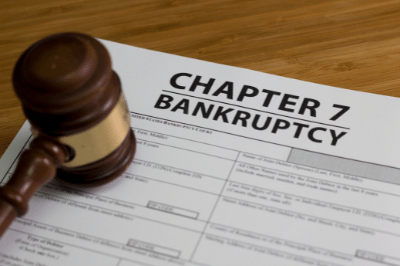
What is a 341 hearing?
A 341 hearing is also called a “meeting of creditors.” This is a meeting where you will meet with your creditors and the trustee to discuss your bankruptcy case. Creditors can ask you questions about your finances and the trustee can ask you questions about your case.
What are the requirements for chapter 7?
In order to qualify for Chapter 7 bankruptcy, you must pass the “means test.” This test looks at your income and compares it to the median income in your state. If your income is lower than the median, you automatically pass the means test and are eligible to file for Chapter 7 bankruptcy.
Can I keep my car if I file for Chapter 7?
If you have a lot of equity in your car, you may not be able to keep it if you file for Chapter 7 bankruptcy. However, there are exceptions to this rule. You should speak with an attorney to find out if you can keep your car in Chapter 7 bankruptcy.
Foreclosure and bankruptcies
Foreclosure and bankruptcies can have a major impact on your credit score and your ability to get a loan in the future. If you are considering bankruptcy, it is important to speak with an attorney to find out if it is the right option for you. Bankruptcy can stay on your credit report for up to 10 years, so it is important to consider all of your options before you decide to file. The real estate market is showing some improvement, So, it might be a good idea to try and work with your lender to keep your home. If you are considering foreclosure, you should also speak with an attorney to find out if it is the right option for you. Sensitive or confidential information regarding your finances should not be shared on a public forum. Also, fair market value should be considered when evaluating any property you are trying to keep in bankruptcy.
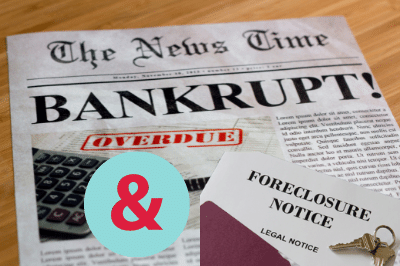
Trustee wants to sell my house
If the trustee wants to sell your house in Chapter 7 bankruptcy, you may be able to keep your home if you can prove that you are “current” on your mortgage payments. You will need to provide proof of your mortgage payments, such as a copy of your mortgage statement or a letter from your lender.
Can I file for Chapter 7 bankruptcy if I am behind on my mortgage?
If you are behind on your mortgage, you may still be able to file for Chapter 7 bankruptcy. However, you will need to bring your mortgage current before you can file for bankruptcy. You should speak with an attorney to find out if you can file for Chapter 7 bankruptcy if you are behind on your mortgage. Federal exemptions may protect you from losing your home in a Chapter 7 bankruptcy.
What is a reaffirmation agreement?
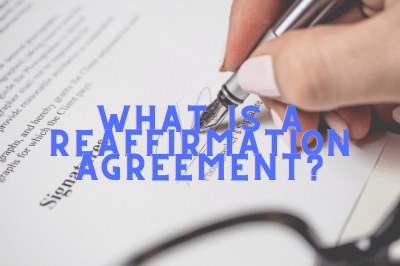
A reaffirmation agreement is an agreement between you and your creditor that allows you to keep your property and repay your debt. Reaffirmation agreements are voluntary and must be approved by the court. If you reaffirm your debt, you will be responsible for repaying the debt even if you later decide to file for bankruptcy.
Can I reaffirm my mortgage in Chapter 7 bankruptcy?
Yes, you can reaffirm your mortgage in Chapter 7 bankruptcy. However, you will need to bring your mortgage current before you can reaffirm your debt. You should speak with an attorney to find out if you can reaffirm your mortgage in Chapter 7 bankruptcy. Loan modification might be a better option if you are struggling to make your mortgage payments.
What is a lien strip?
A lien strip is a procedure that allows you to remove a second mortgage from your home. In order to qualify for a lien strip, you must prove that the value of your home is less than the amount of your first mortgage. Lien strips are very complicated and you should speak with an attorney to find out if you qualify.
What debts are not discharged in bankruptcy?
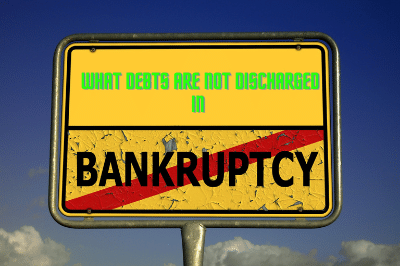
There are some debts that are not discharged in bankruptcy. These include student loans, child support, alimony, and taxes. You should speak with an attorney to find out if your debt will be discharged in bankruptcy. Federal law prohibits discrimination against people who have filed for bankruptcy.
Can I file for Chapter 7 bankruptcy if I have a cosigner on my loan?
If you have a cosigner on your loan, you may still be able to file for Chapter 7 bankruptcy. However, the bankruptcy will discharge your debt but it will not discharge the debt of your cosigner. This means that your cosigner will still be responsible for repaying the debt. You should speak with an attorney to find out if you can file for Chapter 7 bankruptcy if you have a cosigner on your loan.
Have trouble what to do with your property? 253 Houses is here to help!
We buy houses and help property owners like yourself who may not know where to turn or what options they have available to them with all the professional help they might need. Can’t sell your house because you owe taxes or want to avoid foreclosure, filed for bankruptcy, in a tight budget, and want to settle debt quickly, etc.? IRS Lien is closing on you? Do you want to sell your house but the property requires extensive repairs? Want to sell your house but a real Estate Agent charges so much closing costs? 253 Houses can most certainly help you! Just Fill up the form below, or call us at (253) 330-8228 and you will receive a fair cash offer for your home within 24 hours, with no hidden fees or closing costs!
